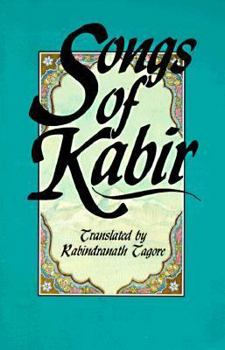Songs of Kabir
Select Format
Select Condition 
Book Overview
This collection of literature attempts to compile many of the classic works that have stood the test of time and offer them at a reduced, affordable price, in an attractive volume so that everyone can... This description may be from another edition of this product.
Format:Paperback
Language:English
ISBN:0877286957
ISBN13:9780877286950
Release Date:January 1988
Publisher:Red Wheel/Weiser
Length:144 Pages
Weight:0.40 lbs.
Dimensions:0.1" x 0.1" x 0.1"














